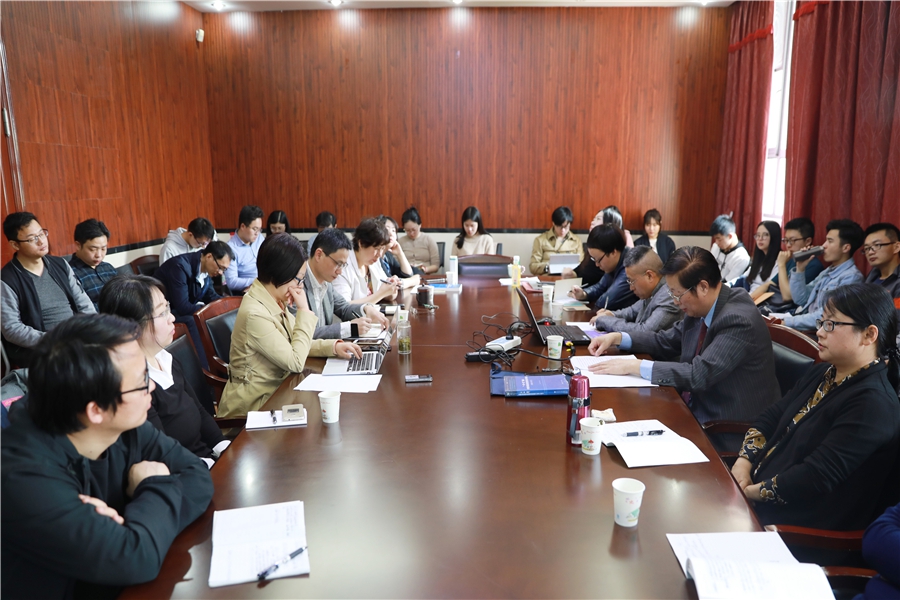On April 10, Lu Nanquan, honorary member of the Chinese Academy of Social Sciences and Deputy Director of Russian Research Center, visited the CIBOS and held a seminar on “Belt and Road Initiative and China-Russia Regional Cooperation”. This seminar was hosted by Xiong Ling, associate professor of the CIBOS. Faculties and students from the CIBOS and the Institute for International Studies (IIS) attended the seminar.

Prof. Lu Nanquan focused on the progress of our country’s “Belt and Road Initiative”. He analyzed its relationship with liberalization of global trade and regional cooperation organizations, as well as its impact on the relationship between China, Russia and the US. Prof. Lu emphasized that China needs to pay attention to three issues regarding the current development of the “Belt and Road Initiative”. Firstly, while building the free trade area, China should attach importance to the construction of its transport infrastructure facilities. An advanced road network can provide “Belt and Road Initiative” with a solid material foundation. Secondly, China has a vast territory both at land and at sea, China should handle properly territorial and maritime disputes that might arise from the implementation of the “Belt and Road Initiative” and establish the cooperation mechanism with relevant countries. Thirdly, China should make full use of the role of Asia Infrastructure and Investment Bank (AIIB) in the “Belt and Road Initiative”, which can help in reforming unreasonable international financial system and promote the internationalization of the Renminbi.

(Prof. Lu Nanquan)
The “Belt and Road Initiative” covers nearly 4 billion people, accounting for 63% of the global population. It also covers an economic aggregate of 21 trillion RMB, accounting for 29% of the global economic aggregate. The “Belt and Road Initiative” has improved the opening-up of relevant countries as well as bolstered their economic growth. This initiative is also an important platform for China to strengthen cooperation with other countries, and will help in enhancing China's international status and influence. However, Prof. Lu Nanquan believes that political, competitive, and profitable risks still exist in the implementation of the “Belt and Road Initiative”. Investment agreements between relevant countries should be signed in order to draw a clear line between investment and aid, and to avoid the adverse effects that might caused by political intervention.
Under the current international trend of “competition and cooperation”, Prof. Lu Nanquan analyzed that the “two-two bilateral relations” between China, the US and Russia has changed significantly: Since Trump assumed office, relations between the US and Russia has deteriorated. Their national interests conflict fundamentally on many international issues such as the Crimean issue, the Syrian issue, and the energy trade issue. The relation between China and the US is also affected by many uncertain factors, including the Taiwan Strait problem, the problem of trade deficits, and the North Korean nuclear issue. In contrast, the China-Russia relations continue to develop steadily under the “Belt and Road Initiative”. In the future, both countries will strengthen their cooperation in infrastructure construction, energy trade, scientific and technological development, and agricultural development.
(Rewritten by Yang Jingjie)
(Edited by Fu Shanshan)
